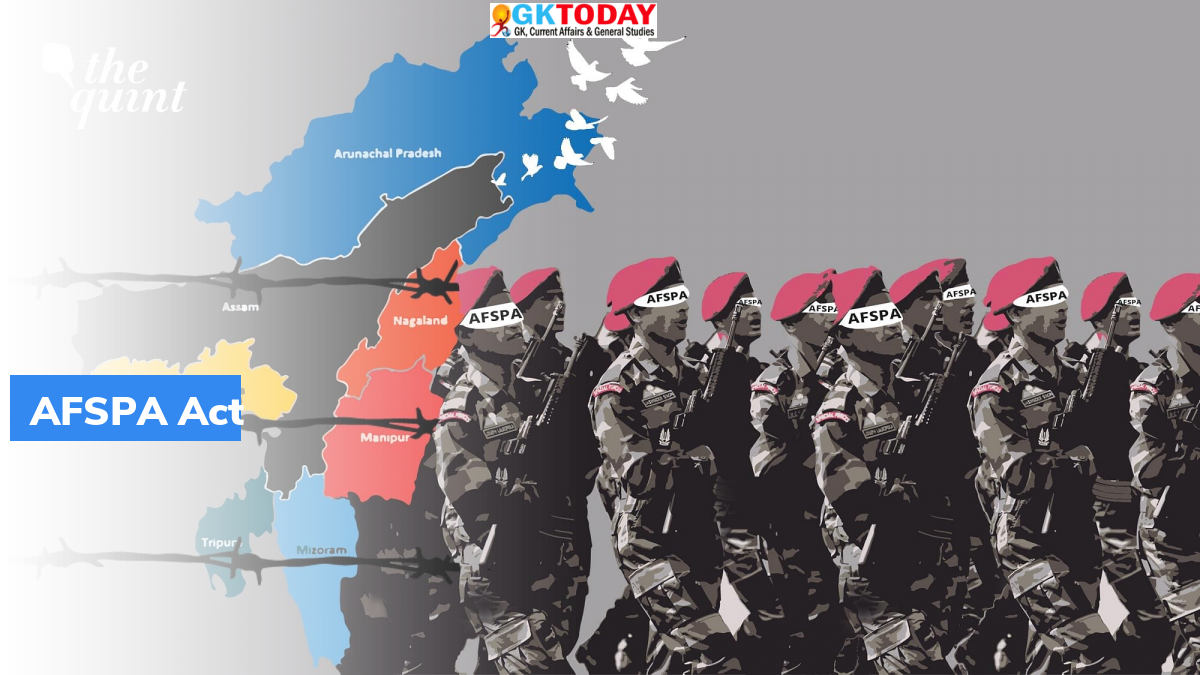Extension of AFSPA in Nagaland
On December 30, 2021, Central government declared entire Nagaland as a “disturbed area” for six more months, under the AFSPA Act.
Key Facts
- This declaration will be in effect, starting from December 30, 2021.
- Government has also termed the state’s condition as “disturbed and dangerous”.
- This decision was taken days after the central government constituted a high-level committee for examining the possibility of withdrawal of controversial Armed Forces (Special Powers) Act from Nagaland.
- AFSPA has been operational in Nagaland for decades.
Centre’s view
Central government is of the view that, area comprising whole of the Nagaland is in such disturbed and dangerous condition that use of armed forces to aid the civil power is necessary.
Which section of the act gives power to centre?
Central government exercised the powers conferred by Section 3 of the Armed Forces (Special Powers) Act, 1958 to declare entire Nagaland as ‘disturbed area’.
Recommendation of the panel
This decision was taken following the recommendation of a panel, which was set to examine the possibility of withdrawal of the AFSPA. Notification to extend AFSPA was issued by additional secretary in Home Ministry, Piyush Goyal. He has been also named as the member secretary in the panel. The Panel is headed by secretary-level officer Vivek Joshi. Panel was set up to ease the rising tension in Nagaland because of killing of 14 civilians.
AFSPA Act
The Armed Forces Special Powers Act, 1958 gives power to the armed forces to maintain public order in “disturbed areas”. With this act, armed forces are authorised to use force or even open fire after warning a person found to be in contravention of the law.
What is a disturbed area?
An area where “use of armed forces in aid of civil power is necessary” is called as a disturbed area. Any area can be declared as disturbed area, under section 3 of the AFSPA.
Month: Current Affairs - December, 2021


